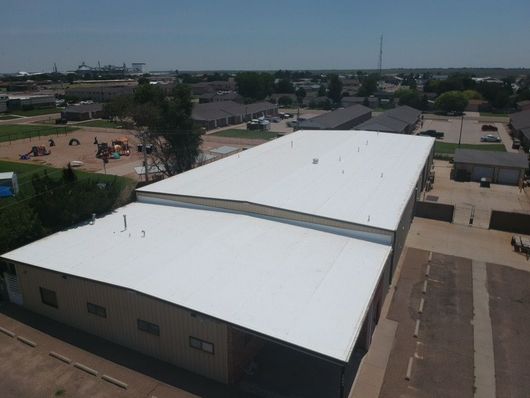When it comes to your business property, the roof is one of the most important aspects to consider. Not only does it protect your building from the elements, but a strong, durable roof can save you significant repair costs and even improve energy efficiency. In this guide, we’ll explore the best materials for commercial roofing and why investing in quality roofing is essential for long-term success.
Assessing Your Commercial Roofing Requirements
Commercial roofs face different challenges compared to residential roofs. Factors like climate, building structure, and the nature of your business operations all influence what type of roofing system is ideal. Whether you're managing a warehouse, an office building, or a retail store, understanding your specific needs will ensure that you choose the right roofing solution.
Choosing the Right Materials for Your Commercial Roof
There are a few top roofing materials commonly used for commercial properties. Each comes with its unique advantages, depending on your needs and budget.
First Choice: Metal Roofing
Metal roofs are a top choice for commercial buildings due to their durability and energy efficiency. Steel and aluminum are the most common materials used, offering resistance to harsh weather conditions and excellent leak prevention. The reflective nature of metal roofs helps keep buildings cooler, lowering energy bills.
2. Flat Roofs
Flat roofing systems are popular for commercial buildings due to their affordability and simple installation. These roofs are particularly suitable for buildings with contemporary architecture. Materials like TPO, EPDM, and PVC are commonly used, offering excellent waterproofing and insulation. Proper maintenance and drainage are essential for their longevity.
Shingle Roofs for Commercial Properties
Shingle roofing, though less common for large commercial buildings, is often used for smaller properties or those aiming for a more traditional appearance. Asphalt shingles are an economical option, easy to install, and come in a variety of designs, though they may not last as long as metal or flat roofing systems.
Roof Installation: Best Practices and Maintenance Tips
Once you've selected the right material for your commercial roof, the next step is installation. Hiring an experienced, licensed roofing contractor ensures the job is done correctly. Proper installation is crucial for preventing leaks and maximizing the lifespan of your roof.
Regular maintenance is also essential. Inspections should be done at least twice a year, especially after harsh weather events. Look for signs of damage, such as missing shingles, cracks, or pooling water. Cleaning gutters and removing debris can also prevent long-term damage and extend the life of your commercial roof.

Why Investing in Quality Roofing Protects Your Business
Investing in a quality roof pays off in the long run. A well-constructed roofing system shields your property from leaks, which can lead to costly damage to your building and assets. Additionally, it improves energy efficiency, cutting down on operating expenses and boosting your property's value. Proper maintenance ensures you avoid future costly repairs.
Final Thoughts: Selecting the Best Commercial Roofer
Selecting the right roofing contractor is crucial to ensuring your roof is installed correctly. Choose a licensed and experienced professional who specializes in commercial properties and can help you choose the best material. A good roofer will also assist you with the installation and ongoing maintenance to keep your roof in optimal condition.
Thinking about upgrading your commercial roof? Get in touch with us today for a free consultation, and let us guide you through the best roofing options for your property.
#CommercialRoofing #RoofingMaterials #BusinessProtection #MetalRoofing #FlatRoofing #RoofInstallation #EnergyEfficiency #RoofMaintenance